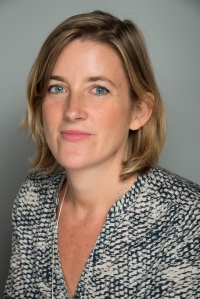The Intel: Nadia Dalbuono
 The American is the follow-up to Nadia Dalbuono’s acclaimed Rome-set thriller The Few, which featured her compromised detective, Leone Scamarcio. So we’re dead excited at Crime Thriller Fella that Nadia has agreed to spill the beans about her conflicted hero, as part of The American Blog Tour.
The American is the follow-up to Nadia Dalbuono’s acclaimed Rome-set thriller The Few, which featured her compromised detective, Leone Scamarcio. So we’re dead excited at Crime Thriller Fella that Nadia has agreed to spill the beans about her conflicted hero, as part of The American Blog Tour.
The son of a former leading mafioso, Scamarcio has turned his back on the family business and joined the Rome police force. When he is called to investigate an apparent suicide on the Ponte Sant’Angelo, a stone’s throw from Vatican City, the dead man’s expensive suit suggests yet another businessman fallen on hard times.
But Scamarcio is immediately troubled by similarities with the 1982 murder of Roberto Calvi, dubbed ‘God’s Banker’ because of his work for the Vatican Bank. When, days later, a cardinal with links to the bank is killed, and the CIA send a couple of heavies to warn him off the case, Scamarcio knows he is on to something big ...
A documentary filmmaker for Channel Four, Nadia these days devotes more time to writing in Italy. She gives us the intel on Scamarcio, the beautiful shadow world of Rome, the real life mystery that fuels her new book - and how, if you’re a writer, you’re going to have to take criticism on the chin.
Tell us about Leone Scamarcio…
Leone is a good man but he’s very difficult. He’s plagued by feelings of shame, insecurity and frustration as a result of the family tragedy that befell him as a teenager. It is now over twenty years since that day but he still hasn’t managed to shake off these issues. Unfortunately he is highly attractive to women and those that find themselves in a relationship with him face a very bumpy ride.
What was the inspiration for The American?
I’ve always been intrigued by the death of Roberto Calvi who was head of Banco Ambrosiano, a bank in which the Vatican was the main shareholder. He died in highly mysterious circumstances on Blackfriars Bridge in London in 1982 but the questions surrounding his death have never been answered. His suicide/murder was the primary inspiration for the book.
What is it about Rome and about Italian society that so attracts you?
I think it’s the complexities and ambiguities of Italian society that so appeal. You have these picture postcard settings: the landscapes, the architecture, the artistic treasures but beneath it all there’s so much darkness, so much suspicion, paranoia and mistrust. It’s a cauldron of nefarious activity and I like the contrast.
 Italy is home to two of the world’s most-secretive organisations - the Mafia and the Vatican. As a crime writer, you must be like a kid in a sweet shop…
Italy is home to two of the world’s most-secretive organisations - the Mafia and the Vatican. As a crime writer, you must be like a kid in a sweet shop…
That’s it really. The lunchtime news often makes your jaw drop and I find myself struggling to keep up sometimes. Frankly, the UK seems somewhat bland in comparison. I grew up there but I don’t really have a great desire to write about the place.
Has your own career as a documentary film-maker influenced your writing, do you think?
Yes I think it has. When you work in documentaries you come across such a colourful cast of characters all with their own unique stories to tell. Inevitably they give you ideas for characters or plots. I also think documentaries give you quite a good feel for dialogue because you spend so much time in the edit listening to how people express themselves.
You love TV crime dramas – what’s kept you gripped recently?
I loved the American version of The Bridge and although it’s more of a spy than a crime drama, I think The Americans on Fox is really strong. It just seems to improve with every series.
What’s the hardest lesson you ever had to learn about writing?
You have to be your own worst critic. If you think something doesn’t quite work, it’s no good thinking that it’s probably just you and nobody else will notice. They will. Also, you need to learn to take criticism on the chin. It really stings at first but you need to let the emotion dissipate and then focus on the point that is being made. You should ask yourself if they could be right and if it’s something you should be working to improve.
Who are the authors you admire, and why?
Michael Connelly for his extraordinary insider knowledge of the court room which makes his books so compelling. Lee Child for his pacing and Dennis Lehane for his ability to create an atmosphere. For me, Lehane is the master.
Give me some advice about writing…
Try to write every day if you can. Writing is a muscle and if you don’t use it, it grows slack. I am a mother to two small children and it is not always possible for me to sit down at my desk so I’ve learnt this the hard way.
What’s next for you and Scamarcio?
I’ve just finished book three in the series which takes Scamarcio into the world of Rome’s showbiz set. I’m now about to start book four which will be quite a departure and sees him involved in a crisis he would never have expected to be asked to assist with. His role threatens to place him at the centre of the global media spotlight which is the very last thing he wants…
***
The American, published by Scribe, is out now in paperback.

